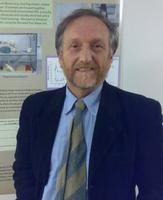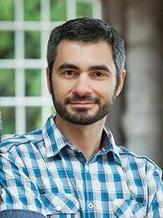About the Organizers

Stefano Parmigiani
- Full professor of Applied Biology (Department of Medicine - Università di Parma)
- Director of the Ethology and Psychobiology Laboratory of the Evolutionary and Functional Biology Unit (Department of Chemistry, Life Sciences and Environmental Sustainability)
- Director of the International School of Ethology "Dànilo Mainardi" of the Ettore Majorana Foundation and Centre for Scientific Culture (EMFCSC) - Erice (Sicily)
- President of the Italian Society of Ethology (SIE)
- Phone +39(0)521 905670
email: stefano.parmigiani@unipr.it
http://scholar.google.it/citations?user=cNKshzEAAAAJ&hl=it
His research interest is characterized by a multidisciplinary approach ranging from Ethology, Psychobiology, Behavioral Endocrinology and Behavioral Neuroscience in animal models (i.e. Causations and functions of male and female mice social aggression; Neurochemical correlates of different forms of aggression: ethopharmacological analysis of maternal aggression, inter-male attack and infanticide; Effects of prenatal exposure to drug, man -made Endocrine Disrupting Chemichals and stress on neuro-endocrine development and socio-sexual behavior of mice) and recently Evolutionary Psychology. (Relationship between personality traits, neuroendocrine responses and competition outcome in martial arts athletes; The role of social stress and individual vulnerability in the genesis of male psychogenic sexual disorders). Member of the Permanent Monitoring Panels (PMP) of Pollution and Sustainable Development of the International Seminars on Planetary Emergencies of the EMFCSC dealing with Developmental Effects of pre and perinatal exposure to Endocrine Disrupting Chemicals on reproduction, physiology, brain and behavior in animals and humans. He organized and directed several workshops of the International School of Ethology e.g. Ethology and Psychobiology of fear and defense; Protection and Abuse of Young in Animals and Man; Ethology & Biomedical Research; Impact of Endocrine Disrupting Chemicals (EDC) on Brain development and Behavior; Social stress: impact on Physiology and Behavior; Neuroeconomics: recent Advances and Future Directions; Adapted Mind, adapted Body: the Evolution of Human Behavior and its Endocrine Regulation; Animal and Human Emotions; Translational Neuroscience and Mental Disorders: bridging the gap between animal models and human condition and as antecedents of the present workshop on rituals, belief and religious mind The Evolution of Morality: the Biology and Philosophy of Human Conscience (2012); What made us Humans?: Biological and Cultural Evolution of Homo Sapiens (2014); The Symbolic animal: Evolution and Neuroethology of Aesthetics (2016) that generated books and /or special issues of International Journals

Ara Norenzayan
- Professor of Psychology - Department of Psychology - University of British Columbia)
- Co-director of HECC
- Tel. (604) 827-5134
email: ara@psych.ubc.ca
http://scholar.google.com/citations?user=_7PTKBMAAAAJ&hl=en
Ara Norenzayan is social psychologist and his current research interests include evolutionary and cognitive approaches to religious thoughts, cultural variability, and universality in human psychology. Among the many research topics he concentrated his attention on the cultural evolution of religion and morality and how religion affects human cooperation and conflict. He’s also the author of the book, “Big Gods: How Religion Transformed Cooperation and Conflict.” He is a director of the Centre for Human Evolution, Cognition, and Culture (HECC http://www.hecc.ubc.ca/ ) The HECC is a research and training hub at the University of British Columbia that aims to simultaneously advance understanding of the human species within the framework of Darwinian evolutionary theory, and encourage evolutionary scientists to incorporate cultural learning and cultural evolution in explanations of human thought and behavior. He is member of the Cultural Evolution of Religion Research Consortium (CERC http://www.hecc.ubc.ca/cerc/ ) that with the “Evolution of Religion and Morality” project brings together the expertise of over fifty scientists, social scientists and humanities scholars from universities across the globe with the aims to answer the question of what religion is, how it is linked to morality, and why it plays such a ubiquitous role in human existence.
- Norenzayan, A. (2016). Theodiversity. Annual Review of Psychology, 67, 21.1-21.24.
- Norenzayan, A. (2013). Big Gods: How Religion Transformed Cooperation and Conflict. Princeton University Press
- Henrich, J. , Heine, S. J., & Norenzayan, A. (2010). The weirdest people in the world? Behavioral and Brain Sciences, 33, 61-83
- Norenzayan, A. , & Shariff, A. F. (2008). The origin and evolution of religious prosociality. Science, 322, 58-62.
- Norenzayan, A. , & Heine, S. J. (2005). Psychological universals: What are they and how can we know? Psychological Bulletin, 135, 763-
Edward Slingerland

- Professor of Asian Studies - Associate Member - Depts. of Philosophy and Psychology
- Director, Database of Religious History
- Co-director, HECC
- PI and director of CERC
- Phone: 604-827-3160
- Email: edward.slingerland@ubc.ca
- http://scholar.google.ca/citations?user=E1RXTjEAAAAJ&hl=en
Edward Slingerland is a Professor of Asian Studies at the University of British Columbia, and the Canada Research Chair in Chinese Thought and Embodied Cognition. He is a co-director of the Centre for Human Evolution, Cognition, and Culture (HECC- http://www.hecc.ubc.ca/ ) and the Primary Investigator and director of the Cultural Evolution of Religion Research Consortium (CERC http://www.hecc.ubc.ca/cerc/). His research specialties include Chinese thought, religious studies, cognitive linguistics, ethics, evolutionary psychology, and the relationship between the humanities and the natural sciences. His recent interest ranges from the evolution of religion, morality and prosociality trying to answer questions such as why do human beings have religious beliefs and engage in religious behaviors? Are religious beliefs linked in any way to moral judgments, and do they enhance in-group cooperation? Are such links universal cross-culturally? Might the combination of religious beliefs/behaviors and moral judgments have arisen through cultural group selection? These questions are also the focus of a large grant awarded to UBC in 2012 that has established the Cultural Evolution of Religion Research Consortium (CERC); see http://www.hecc.ubc.ca/cerc/project-summary/.; Humanities-Natural Science Integration where he defends and advances the cause of science-humanities integration at a meta-theoretical level., the evolutionary origins of religion and large-scale human sociality. Along this line his books What Science Offers the Humanities (2008)and Creating Consilience (2012) get beyond the narrow emphasis on either nature or nurture and emphasize the bidirectional nature of science-humanities cooperation and finally to the Theory of Mind (ToM) and Mind-body folk dualism where the main questions are: is the tendency to project agency, intentionality, psychological states onto others—a human cognitive universal? Do we find ToM and mind-body folk dualism in early China, which is often characterized as being “holistic”? Is ToM centrally linked to religious cognition? These questions are the focus of several journal articles and book chapters over the years. A grant from the University of Oxford’s Centre for Religion, Theology and Cognition also allowed him to develop a novel technique for exploring the question of mind-body dualism in early China.
- E. Slingerland , What Science Offers the Humanities: Integrating Body & Culture. New York: Cambridge University Press, 2008
- E. Slingerland and Mark Collard (edited), Creating Consilience: Integrating the Sciences and the Humanities, Oxford University Press, New Directions in Cognitive Science series, 2012
- E. Slingerland Trying Not to Try: Ancient China, Modern Science and the Power of Spontaneity. New York: Crown (Random House), 2014

Joseph Henrich
- Professor of Human Evolutionary Biology
- Department of Human Evolutionary Biology
- phone: (617) 384-8640
Email: henrich@fas.harvard.edu
http://scholar.google.ca/citations?user=5sKZzs8AAAAJ&hl=en
His research focuses on evolutionary approaches to psychology, decision-making and culture, and includes topics related to cultural learning, cultural evolution, culture-gene coevolution, human sociality, prestige, leadership, large-scale cooperation, religion and the emergence of complex human institutions. the evolution of economic decision-making and religious beliefs. Unlike other species, humans are heavily reliant on learning from others to acquire many important aspects of their behavior, and this cultural transmission has created a second system of inheritance that has driven much of our species' genetic evolution. Therefore his main questions are : How does cultural evolution shape our psychology, brains, motivations, hormonal responses, intuitive reactions, beliefs, worldviews and preferences? How can we account for the immense psychological variation we observe across the globe? In addition to having shaped our species' anatomy and physiology, cultural evolution has important implications for understanding human nature, and for how to tackle basic problems in psychology, economics and anthropology. Methodologically, he integrates ethnographic tools from anthropology with experimental techniques drawn from psychology and economics. In this perspective the comparative approach to the study of behavior is fundamental and he focuses on both studies of non-human primates, especially chimpanzees, and the full breadth of human diversity. Along this line of thinking he also explores the evolutionary origins, biological foundations, and psychology underlying human behaviors including kinship, sexuality, incest, parental love, xenophobia, status, homicide, warfare, culture, language, and religion.
- Henrich , Joseph; Bowles, Samuel; Boyd, Robert; Camerer, Colin; Fehr, Ernst; Gintis, Herbert (2004). Foundations of human sociality: economic experiments and ethnographic evidence from fifteen small-scale societies. Oxford New York: Oxford University Press. ISBN 9780199262052